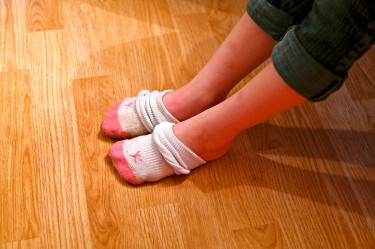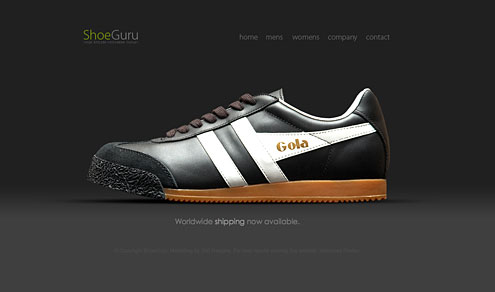
Courtesy Shutterstock
- Prioritize your health. You cannot be your best or help others if you’re mentally or physically sick. It is never selfish to share your feelings, exercise regularly, or visit a doctor. This is how we put on our own oxygen mask before helping others. It is the foundation for everything that follows.
- Create what excites you (not others). Not being true to one’s self is the number one regret of the dying. When deciding what you want to do, never let a family member, friend, society, or logic decide for you. Follow your heart or die with regret.
- Take time off. Working too much is the number two regret of the dying. So enjoy downtime on weekends, nights, and periodic vacations. Don’t work extra hard for money you don’t need. Enjoy the limited time we’re given instead.
- Keep a calendar. You can’t spend your time with purpose without keeping a life calendar. Failure to keep or outsourcing your calendar is a great way to let others decide how, where, or who you spend your time with, which is how we end up unhappy.
- Swallow your pride. Hey, you over there. You’re not that special. You’re one of billions of humans, most of which have done much more impressive stuff than you. So please, suppress your ego and accept your averageness. You are a social creature and not the exception. So act like it, and you’ll enjoy life a whole lot more.
- Count your blessings. This is hands down the fastest way to happiness, regardless of circumstances. Harvard research proves this.
- Stay curious. Formal education is overrated. Asking lots of questions everyday is not. So ask questions, even big, broad, and hard ones. Seek truth. Talk to people smarter than you. Read books. Watch documentaries. Enroll in classes. Learn something new at an old age. Then learn something else. Do this again, and again, and again. This keeps the mind active and helps us grow, which is a huge factor in living large and finding fulfillment.
- Invest in relationships. You don’t want to live or die alone. Like physical fitness, you must spend time on relationships if you want lots of friends and family. At the same time, you must understand that saying “no” to others is saying yes to yourself. True friends and family will support you in that regard, so long as you’re taking an interest in them, initiating social encounters, and reciprocating.
- Be adventurous. Travel the world. Go skydiving. Do something that scares you. Visit the “wrong” side of town. Talk to people that look, act, and think differently than you. Do at least one daily thing that makes you uncomfortable. Doing so challenges your beliefs even better than a formal education.
- Invoke God. Sorry atheists and agnostics. You’re not gonna like this, But prayer, mediation, and recognition of a higher power does wonders for the soul. You might think it’s a placebo effect. But it doesn’t matter. Invoking God works.

Here goes nothing. If I missed anything, set me straight in the comments: Continue reading…
 This week many world and local leaders hit the nuclear response button to a pervasive, flu-like virus that kills a lot of old people and around 10 times the number as the common flu, according to the latest figures.
This week many world and local leaders hit the nuclear response button to a pervasive, flu-like virus that kills a lot of old people and around 10 times the number as the common flu, according to the latest figures.
Dubbed “the coronavirus” (covid-19 to be scientific), roughly 92% of all infected age groups survive and fully recover. For those under 60, the survival rate jumps to over 99%. For those in their 70s and 80s, or those with respiratory or smoking conditions, the survival rate drops to 96% and 92% respectively. For comparison, the flu kills .1% of those infected on average.
Understandably, those “much higher than normal odds” are a scary concern for senior citizens like my parents who venture out in public. But depending on how optimistic you are, a 92-99.5% survival rate doesn’t warrant shutting down society for, as one megacity in China has done and the entire countries of Italy, France, Spain (and surely more) have already done.
In my opinion, those reactions are the nuclear option. A “flattening the curve” of infections at all costs option. In America, we’ve so far taken a hybrid approach, which is still an overreaction, in my risk-taking opinion. Although citizens are free to move about and go to a decreasing number of open stores (because there isn’t enough foot traffic to keep them all open), every public event, many businesses, most churches, and an increasing number of schools are closed to meetings.
To make matters worse, public officials haven’t explained an endgame or exit strategy for the first wave of 15-30 day closures. Because they don’t have one. This only causes more panic and uncertainty. Continue reading…

I used to be a night owl. But after waking up groggy for three decades, I learned in my 30s to embrace sleep, if not be selfish with it—i.e. I rarely if stay up past 10 or 11 now, even on weekends.
Since then, I’ve accomplished signficantly more, especially on mornings and weekends, which I used to let slip by. How do I do it?
These are the rules that I live by, according to science: Continue reading…

“It doesn’t hurt to ask,” is one of the many sayings I live by. While there are some exceptions to this rule, it is mostly true and has served me well.
This is especially true when flying. Some passengers keep to themselves for fear of troubling flight attendants. But most flight attendants want you to have a good flight, which makes their jobs easier.
That said, you can often get the following seven things for free on your next flight. You just have to ask. Continue reading…

credit: blake snow
Life is hard sometimes. It’s always hard if you do any of the following with regularity: Continue reading…

As someone who’s written hundreds of articles for fancy publications, I’m often asked the best way to land free publicity.
Outside of knowing when you have truly have something that’s noteworthy and knowing which audiences are most likely to find your something relevant, my colleague Josh Steimle recently wrote about the subject for Entrepreneur; specifically how to get great PR in 15 minutes per day.
Josh was kind enough to interview and quote me in the article. This is what I said: “Indirect PR pitches are the best way to increase your chances of a media placement. Rather than talking about yourself, explain a larger trend that might interest the journalist or publication you’re pitching, complete with stats, anecdotes and data.
“Your contribution should be only part of the story. Doing so not only makes the press’s job easier but demonstrates greater objectivity, further increasing your chances of a placement.”
In my experience as someone being pitched, that approach leads to a lot more placements.
Since we’re on the subject, now go watch Ace in the Hole, All The Presidents Men, State of Play, and Spotlight—all good if not remarkable movies on journalism.

Blake Snow
“If you approach two people in the middle of a conversation, and they only turn their torsos and not their feet, they don’t want you to join the conversation,” teach the smart people of Quora. “Similarly, if you are in a conversation with a coworker who you think is paying attention to you, and their torso is turned towards you but their feet are facing another direction, they want the conversation to end.”
Wonderful observation. Another one I like: “If you are angry at the person in front of you driving like a grandmother, pretend it is your grandmother. It will significantly reduce your road rage.” As of 6:58 yesterday on I-15 southbound, I can confirm this works.
Speaking of feet: Did I pass that on? Human genetics are incredible
(CNN) — From Airbnb to GasBuddy to shopkick, lots of apps and websites help consumers save money.
But how do we spend less on technology itself — that digital drug we can’t seem to get enough of? How can we save money on electronic gadgets and services … so that we can buy more gadgets?
Here are 10 ways to stretch your tech budget this year: Continue reading…
 Via SmartBlog:
Via SmartBlog:
-
Nonverbal tells. Liars don’t rehearse their gestures, just their words. The cognitive load is already huge, so when they tell their story, they freeze their upper body, look down, lower their voice, and slow their breathing and blink rate. And they will exhibit a recognizable moment of relief when the interview is over. Interrogators will often end an interview prematurely just to look for that shift in posture and relaxation.
-
Verbal tells. People who are overly determined in their denial resort to non-contracted rather than relaxed language. “Did not” rather than “didn’t” They will use distancing language as in “ that woman” rather than someone’s name. They will often pepper their story with inappropriate detail as if to prove to you they are telling the truth. They will look you in the eye too much, as if to appear honest, when in fact most people telling the truth only look you in the eye a comfortable 60 % of the time.
-
Stories told in perfect chronological order. Try to get them to tell their story backwards. They can’t do it. Honest people remember stories in the order of emotional prominence. Liars tend to concoct a time-stamped story but they falter when asked to recount it differently.
Part two in my Awkward Tip Etiquette series
 I stiffed my take-out waiter for the first time this weekend and got an ugly look for it.
I stiffed my take-out waiter for the first time this weekend and got an ugly look for it.
Normally I tip receptionists a buck for boxing my meal and carrying it all the way from the kitchen to the reception desk. (Excruciating work, I know.) But this time I grew a pair and followed my wife’s example: Don’t tip a restaurant worker for putting carry-out in a bag for you.
Again, I’m fine tipping someone that actually “waits on you” in a dining room. Servers don’t get paid a minimum wage. They’re normally hard workers and/or are struggling to make ends meet. So I’m happy to throw a few Washingtons their way for good service.
But I’m done tipping for carry-out, since the person handing me my food doesn’t add any value to my patronage, nor do they serve. I don’t care if it’s the bartender, the host, or some other receptionist. And I’m not going to let awkward attempts to “serve me” a bag or ugly looks deter me. Unless, of course, you can convince me otherwise.
Do you tip for carry-out food? If so, why?

Want to encourage better conversion rates on your website (be it purchases, blog traffic, whatever) while looking good? Don’t give your readers more than a few options to choose from. By forcing them to look at what you want, you’ll enjoy more targeted traffic.
Apple does it. So does Shoe Guru. Both may be extreme, but their website design ensures them greater control over what they promote, resulting in tighter focus and better sales over the alternative, cluttered sites.
Off-topic: I’d totally buy those shoes if knew what Shoe Guru size I wear.
I got a bone to pick with cheap employers, of which there are several in my resident state of Utah. Here’s what they do.
- They don’t pay competitive hourly wages for jobs that don’t require significant waiting on the customer, like a server does in a restaurant.
- They then put up signs saying “please tips our workers,” because they’re too cheap to pay a decent hourly wage.
- They seemingly lure in prospective employees with the promise of tips.
- Everyone ends up confused, from the unsure consumer to the under-paid worker.
My car wash does this. My car gets run through a machine, then an hourly worker rubs it down with a towel in less than three minutes. When done, they look at you while standing next to a ginormous sign asking for tips. Fast food restaurants have begun doing this too.
I have no problem tipping upwards of 20 percent for good service where standard (i.e. restaurants, cabs, bag boys). But when hourly workers start doing it, it feels lame on principle alone. Or maybe I’m just a cheap skate (what’s an extra few bucks to me).
Don’t have time to read every popular business book out there? Read the book summaries at either Wikipedia or Wiki Summaries. These “Cliff Notes” of sorts work great for buzz terms, new ideas, and heavy meme books like the following:
The list could go on and on. Just Wiki a popular book and have at it. Of course, this isn’t a substitute for that excellent thing called actual reading, but it’s a great way to stay up to date, if not refresh yourself on the key ideas of emerging (or repackaged) concepts in business.



 This week many world and local leaders hit the nuclear response button to a pervasive, flu-like virus that kills a lot of old people and around 10 times the number as the common flu, according to the latest figures.
This week many world and local leaders hit the nuclear response button to a pervasive, flu-like virus that kills a lot of old people and around 10 times the number as the common flu, according to the latest figures.




 Via
Via  I stiffed my take-out waiter for the first time this weekend and got an ugly look for it.
I stiffed my take-out waiter for the first time this weekend and got an ugly look for it.